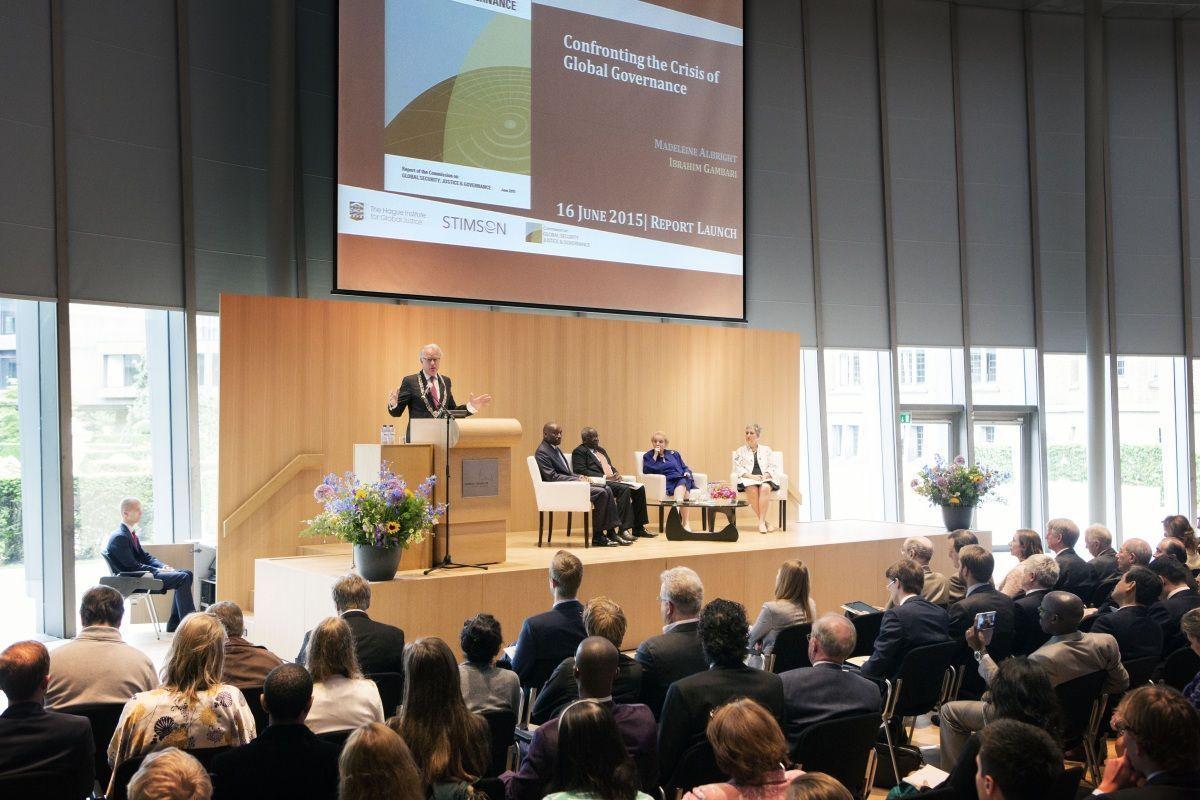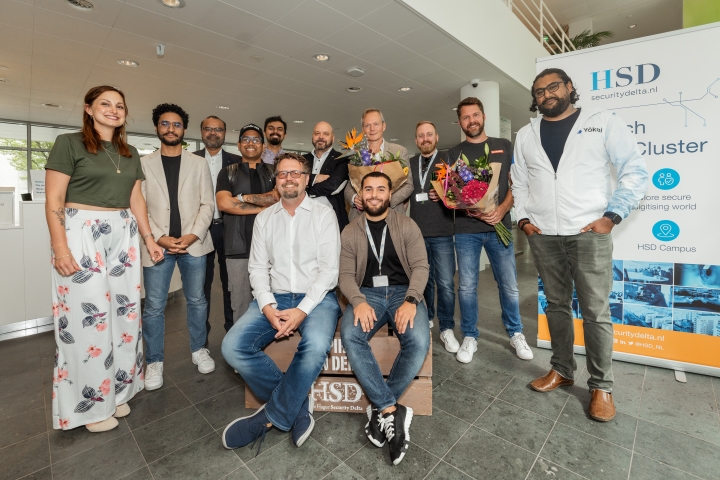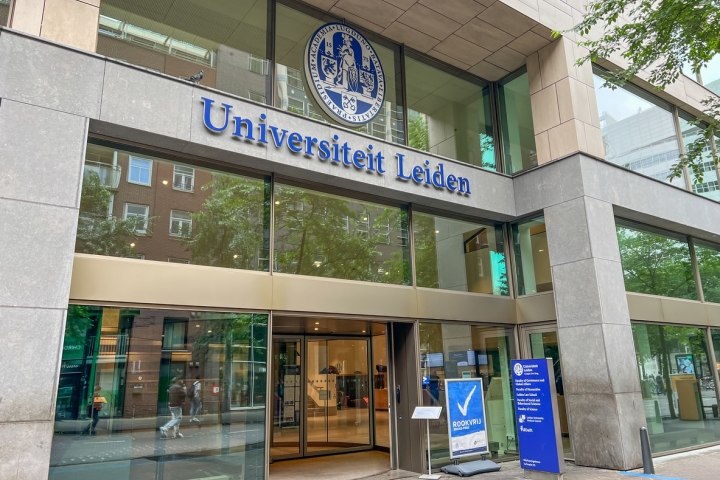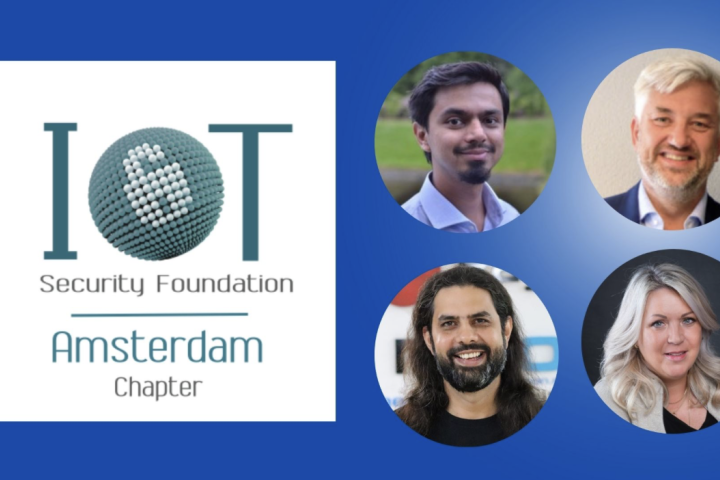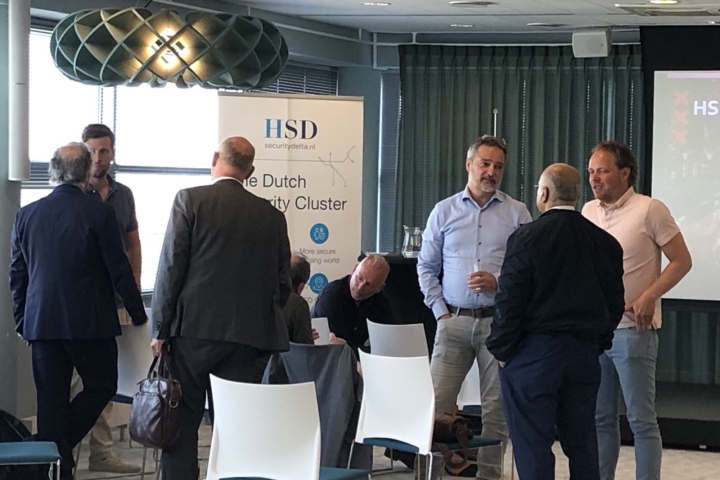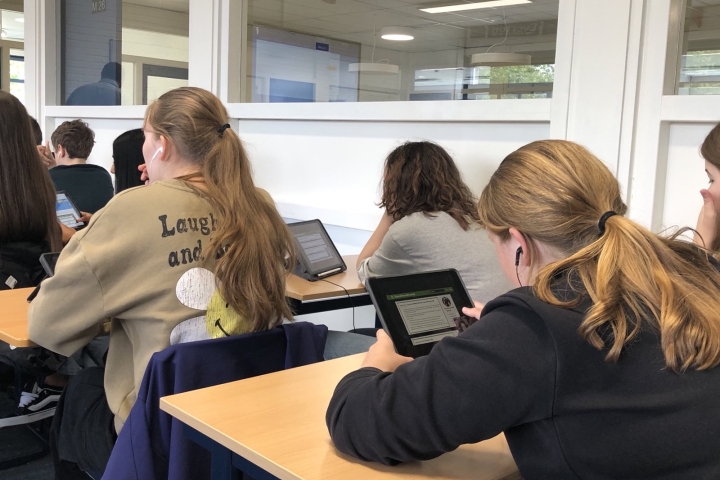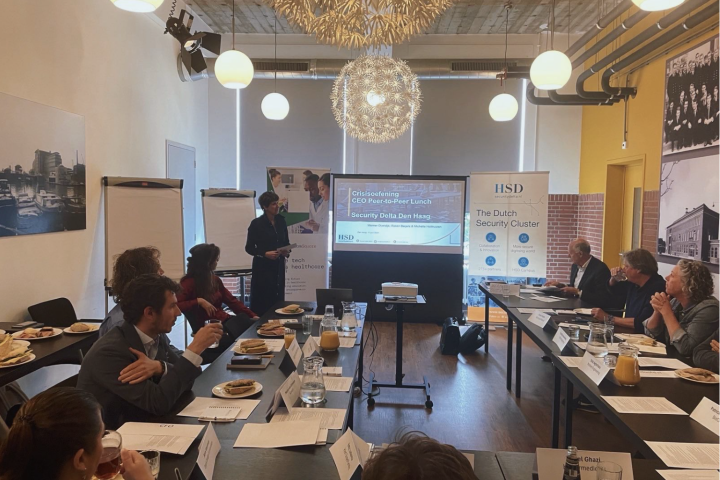Report of the Commission on Global Security, Justice & Governance Launched at Peace Palace in The Hague
On the 16th of June at the Peace Palace in The Hague, former U.S. Secretary of State Dr. Madeleine Albright and former Nigerian Foreign Minister and UN Under-Secretary-General for Political Affairs Dr. Ibrahim Gambari presented ‘Confronting the Crisis of Global Governance’, the new report of the Commission on Global Security, Justice & Governance.
According to Secretary Albright, the world requires “more capable tools of global governance, with different kinds of public, private, and mixed institutions designed for twenty-first-century challenges.” During the launch, HSD was mentioned as a good example of multi-stakeholder cooperation on such issues. Also, to address these challenges, the report itself provides targeted reforms that transcend national borders, and reach out to diverse stakeholders, including business groups, mayors, civil society, and local communities and cities, a point which was emphasized by Mayor of The Hague Jozias van Aartsen, Chairman of the HSD Board.
In the face of growing mass violence in fragile states, the threat of runaway climate change, and fears of devastating cross-border economic shocks and cyber attacks, the world needs a new kind of leadership, combined with new tools, networks, and institutions. The Commission’s Report offers a vision for just security, to ensure that neither justice nor security imperatives are neglected by critical international policy debates in 2015 and beyond. It further presents a bold, yet practical action plan for innovating global governance, and ways to mobilize diverse actors to advance reform to better respond to 21st century threats, challenges, and opportunities. The choice for The Hague yet again emphasizes the importance of the city in combining global justice and security.
The recommendations include the investment in early-warning capabilities and responsibility to protect action plans for an approach to atrocities prevention that involves all UN agencies and programmes, new, nontraditional types of engagements between different stakeholders, and a global network of cybercrime centres.
Click here for more information and to download the report.




